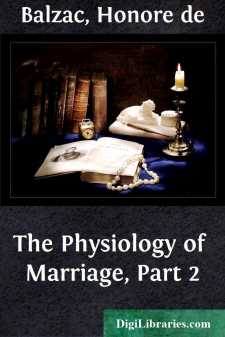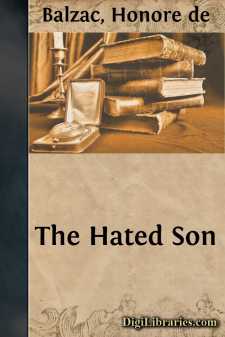Categories
- Antiques & Collectibles 13
- Architecture 36
- Art 48
- Bibles 22
- Biography & Autobiography 813
- Body, Mind & Spirit 142
- Business & Economics 28
- Children's Books 17
- Children's Fiction 14
- Computers 4
- Cooking 94
- Crafts & Hobbies 4
- Drama 346
- Education 46
- Family & Relationships 57
- Fiction 11829
- Games 19
- Gardening 17
- Health & Fitness 34
- History 1377
- House & Home 1
- Humor 147
- Juvenile Fiction 1873
- Juvenile Nonfiction 202
- Language Arts & Disciplines 88
- Law 16
- Literary Collections 686
- Literary Criticism 179
- Mathematics 13
- Medical 41
- Music 40
- Nature 179
- Non-Classifiable 1768
- Performing Arts 7
- Periodicals 1453
- Philosophy 64
- Photography 2
- Poetry 896
- Political Science 203
- Psychology 42
- Reference 154
- Religion 513
- Science 126
- Self-Help 84
- Social Science 81
- Sports & Recreation 34
- Study Aids 3
- Technology & Engineering 59
- Transportation 23
- Travel 463
- True Crime 29
Rise and Fall of Cesar Birotteau
by: Honore de Balzac
Categories:
Description:
Excerpt
During winter nights noise never ceases in the Rue Saint-Honore except for a short interval. Kitchen-gardeners carrying their produce to market continue the stir of carriages returning from theatres and balls. Near the middle of this sustained pause in the grand symphony of Parisian uproar, which occurs about one o'clock in the morning, the wife of Monsieur Cesar Birotteau, a perfumer established near the Place Vendome, was startled from her sleep by a frightful dream. She had seen her double. She had appeared to herself clothed in rags, turning with a shrivelled, withered hand the latch of her own shop-door, seeming to be at the threshold, yet at the same time seated in her armchair behind the counter. She was asking alms of herself, and heard herself speaking from the doorway and also from her seat at the desk.
She tried to grasp her husband, but her hand fell on a cold place. Her terror became so intense that she could not move her neck, which stiffened as if petrified; the membranes of her throat became glued together, her voice failed her. She remained sitting erect in the same posture in the middle of the alcove, both panels of which were wide open, her eyes staring and fixed, her hair quivering, her ears filled with strange noises, her heart tightened yet palpitating, and her person bathed in perspiration though chilled to the bone.
Fear is a half-diseased sentiment, which presses so violently upon the human mechanism that the faculties are suddenly excited to the highest degree of their power or driven to utter disorganization. Physiologists have long wondered at this phenomenon, which overturns their systems and upsets all theories; it is in fact a thunderbolt working within the being, and, like all electric accidents, capricious and whimsical in its course. This explanation will become a mere commonplace in the day when scientific men are brought to recognize the immense part which electricity plays in human thought.
Madame Birotteau now passed through several of the shocks, in some sort electrical, which are produced by terrible explosions of the will forced out, or held under, by some mysterious mechanism. Thus during a period of time, very short if judged by a watch, but immeasurable when calculated by the rapidity of her impressions, the poor woman had the supernatural power of emitting more ideas and bringing to the surface more recollections than, under any ordinary use of her faculties, she could put forth in the course of a whole day. The poignant tale of her monologue may be abridged into a few absurd sentences, as contradictory and bare of meaning as the monologue itself.
"There is no reason why Birotteau should leave my bed! He has eaten so much veal that he may be ill. But if he were ill he would have waked me. For nineteen years that we have slept together in this bed, in this house, it has never happened that he left his place without telling me,—poor sheep! He never slept away except to pass the night in the guard-room. Did he come to bed to-night? Why, of course; goodness! how stupid I am."
She cast her eyes upon the bed and saw her husband's night-cap, which still retained the almost conical shape of his head.
"Can he be dead? Has he killed himself? Why?" she went on. "For the last two years, since they made him deputy-mayor, he is all-I-don't-know-how. To put him into public life! On the word of an honest woman, isn't it pitiable? His business is doing well, for he gave me a shawl. But perhaps it isn't doing well? Bah! I should know of it. Does one ever know what a man has got in his head; or a woman either?—there is no harm in that. Didn't we sell five thousand francs' worth to-day? Besides, a deputy mayor couldn't kill himself; he knows the laws too well. Where is he then?"
She could neither turn her neck, nor stretch out her hand to pull the bell, which would have put in motion a cook, three clerks, and a shop-boy....






















